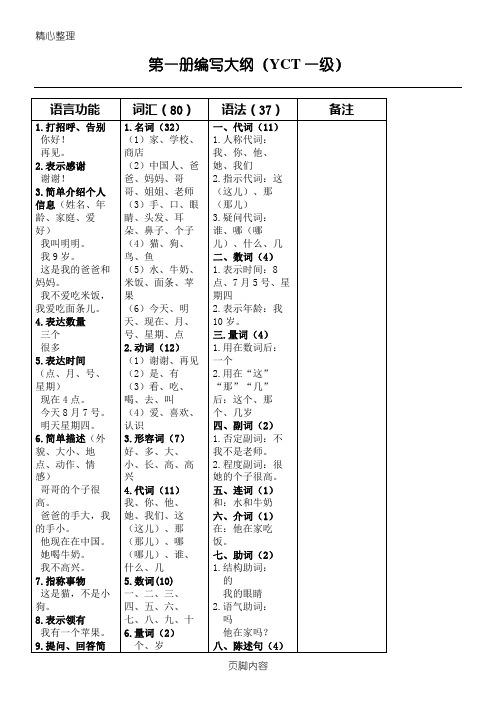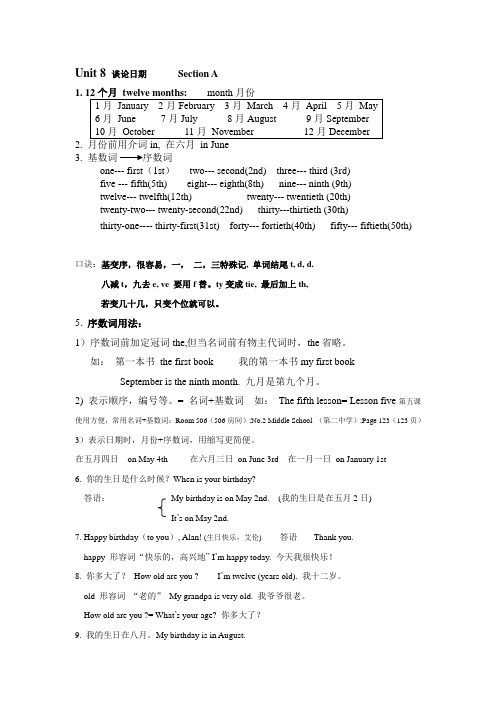8月7日 介词和连词学生
- 格式:doc
- 大小:1.07 MB
- 文档页数:4

介词与连词的运用与搭配介词和连词是英语语法中常用的语法成分,它们具有连接不同成分的作用,使得句子更加连贯和流畅。
正确地使用介词和连词,能够帮助我们表达思想更准确,语句更通顺。
本文将重点讨论介词和连词的运用与搭配,帮助读者更好地掌握它们的用法。
一、介词的基本用法介词是一种虚词,用来连接名词、代词或其他句子成分,构建词组或短语,具有表示时间、地点、原因、目的、方式等关系的作用。
以下是介词的基本用法:1. 表示时间关系的介词:- at:在具体时间点(如at 7 o'clock,在7点)- in:在时间段(如in the morning,在早晨)- on:在日期或特定日(如on Monday,在星期一)2. 表示地点关系的介词:- at:在某一点、地点或事件上(如at the bus stop,在公交车站) - in:在某一范围、地区或内部(如in the park,在公园)- on:在某一表面上或接触面(如on the table,在桌子上)3. 表示原因关系的介词:- because of:因为(如because of the rain,因为下雨)- due to:由于(如due to his absence,由于他的缺席)4. 表示目的关系的介词:- for:为了(如study hard for the exam,为了考试努力学习)- to:向、给予某人(如give the book to me,把书给我)- with:用、以(如write with a pen,用钢笔写)5. 表示方式关系的介词:- by:通过、用(如travel by train,乘火车旅行)- in:以…方式(如in English,在英语中)二、连词的基本用法连词是一种虚词,用来连接两个词、短语、句子或句子成分,构建复合句,表示并列、因果、条件、让步、递进等关系。
以下是连词的基本用法:1. 表示并列关系的连词:- and:和、与(如apples and oranges,苹果和橙子)- or:或者(如tea or coffee,茶或咖啡)- but:但是(如I like him but he doesn't like me,我喜欢他但他不喜欢我)2. 表示因果关系的连词:- because:因为(如I stayed home because it was raining,因为下雨我呆在家里)- since:因为(如He has been living here since he was born,他从出生起就住在这里)3. 表示条件关系的连词:- if:如果(如I will go if you come,如果你来我就去)- unless:除非(如I won't go unless you invite me,除非你邀请我我才会去)4. 表示让步关系的连词:- although:尽管(如Although it was raining, we went out,尽管下雨,我们还是出去了)- though:虽然(如Though he is young, he is very talented,虽然他很年轻,但很有才华)5. 表示递进关系的连词:- and:而且、又(如I bought a book and a pen,我买了一本书和一支笔)- furthermore:而且、此外(如Furthermore, the weather is getting better,此外,天气越来越好)三、介词与连词的搭配运用正确地搭配介词和连词,能够使句子更加准确、流畅。

表时间的介词用法
表达时间的介词用法可以根据具体的时间概念和语境来选择合适的介词。
以下是一些常见的时间介词和其用法:
1.On:表示在某一具体的日期、星期几或特定的日期上使用,如"on Monday"(在星期一)、"on April 1st"(在4月1日)等。
2.In:表示在某一段时间、月份、季节或年份内使用,如"in the morning"(在早上)、"in July"(在七月)、"in summer"(在夏天)等。
3.At:表示在具体的时刻、时间点或某个特定的时间上使用,如"at 9 o'clock"(在九点钟)、"at noon"(在中午)等。
4.For:表示持续的一段时间,常与表示时间段的词语连用,如"for three hours"(三个小时)、"for a month"(一个月)等。
5.During:表示在某个时间段或事件发生期间使用,常与表示时间段的名词连用,如"during the meeting"(在会议期间)、"during the summer vacation"(在暑假期间)等。
6.By:表示截止到某个时间或在某个时间之前完成某个动作使用,如"by the end of the week"(在本周结束之前)、"by 5 o'clock"(在五点钟之前)等。


五年级技巧如何正确运用介词和连词介词和连词在英语语法中扮演着重要的角色,它们能够连接句子成分,表达关系,并帮助我们更准确地表达自己的意思。
在五年级,学生们需要掌握正确使用介词和连词的技巧,以提高写作和口语表达的能力。
本文将介绍一些有用的技巧,帮助五年级学生正确运用介词和连词。
一、介词的正确用法介词通常用来表示时间、地点、原因、方式等概念。
以下是一些常见的介词及其正确用法:1. 时间介词:- On:用于具体的某一天或日期,例如:on Monday(星期一)、on May 1st(五月一日)。
- In:用于月份、季节、年份等时间段,例如:in June(六月)、in summer(夏天)、in 2022(2022年)。
- At:用于具体的时刻,例如:at 3 o'clock(三点钟)、at noon(中午)。
2. 地点介词:- In:用于表示大范围的地点,例如:in China(在中国)、in the park(在公园)。
- On:用于表示具体的平面物体上,例如:on the table(在桌子上)、on the wall(在墙上)。
- At:用于表示具体的地点或建筑物,例如:at school(在学校)、at the cinema(在电影院)。
3. 原因介词:- Because of:用于表示原因,例如:I couldn't go to the party because of the heavy rain(因为下大雨,我不能去参加派对)。
- Due to:与"because of"相同用法,但更正式,例如:The game was canceled due to bad weather(比赛因为天气原因被取消了)。
4. 方式介词:- With:表示伴随,例如:I went to the park with my friends(我和我的朋友一起去了公园)。
- By:表示通过某种方式或手段,例如:I go to school by bus(我坐公交车去学校)。

Unit 8 谈论日期Section A1. 12个月twelve months: month月份1月January 2月February 3月March 4月April 5月May6月June 7月July 8月August 9月September10月October 11月November 12月December2. 月份前用介词in, 在六月in June3. 基数词序数词one--- first(1st)two--- second(2nd) three--- third (3rd)five --- fifth(5th) eight--- eighth(8th) nine--- ninth (9th)twelve--- twelfth(12th) twenty--- twentieth (20th)twenty-two--- twenty-second(22nd) thirty---thirtieth (30th)thirty-one---- thirty-first(31st) forty--- fortieth(40th) fifty--- fiftieth(50th)口诀:基变序,很容易,一,二,三特殊记, 单词结尾t, d, d.八减t,九去e, ve 要用f替。
ty变成tie, 最后加上th,若变几十几,只变个位就可以。
5. 序数词用法:1)序数词前加定冠词the,但当名词前有物主代词时,the省略。
如:第一本书the first book 我的第一本书my first bookSeptember is the ninth month. 九月是第九个月。
2) 表示顺序,编号等。
= 名词+基数词如:The fifth lesson= Lesson five第五课使用方便,常用名词+基数词:Room 506(506房间);No.2 Middle School (第二中学);Page 123(123页)3)表示日期时,月份+序数词,用缩写更简便。

初中语文虚词考点归纳总结初中语文是学习语言文字的重要阶段,其中虚词作为语法的一个重要部分,对于学生的写作和阅读理解能力起着至关重要的作用。
本文将对初中语文中常见的虚词进行归纳总结,以帮助学生更好地理解和运用虚词。
一、连词类虚词1. 并列连词:并列连词在句子中起到连接并列成分的作用,常见的有“和、与、或、还、而且、不但…而且”等。
例如:小明喜欢打篮球和踢足球。
2. 递进连词:递进连词连接两个相互关联且逐渐增加的内容,常见的有“而且、并且、不仅…而且”等。
例如:这部电影不仅情节紧张,而且剧情扣人心弦。
3. 转折连词:转折连词表示转折或对比的关系,常见的有“但是、然而、可是、而、却”等。
例如:小明认真学习,但是成绩并没有提高。
二、介词类虚词1. 方位介词:方位介词用来表示空间、方向关系,常见的有“在、向、从、到、往、离”等。
例如:小红拿起书走到桌子前。
2. 时间介词:时间介词用来表示时间关系,常见的有“在、于、向、自、以、至”等。
例如:我每天早上都在七点起床。
3. 所有格介词:所有格介词表示所有关系,常见的有“的、之、的”等。
例如:这是我的书。
三、助词类虚词1. 助动词:助动词用来帮助说明动词的时态、语态等方面的信息,常见的有“是、有、要、能、会”等。
例如:我是一名学生。
2. 状态助词:状态助词用来表示程度、态度等,常见的有“很、非常、太、极其、确实”等。
例如:这本书很有趣。
四、语气助词类虚词1. 接续助词:接续助词用来连接句子并起到过渡作用,常见的有“的、地、得”等。
例如:他高兴地笑了起来。
2. 着助词:着助词表示动作的状态或方式,常见的有“在、向、跟、对、向、给”等。
例如:他朝我走来。
五、语气助词类虚词1. 疑问代词:疑问代词用来引导疑问句,常见的有“谁、哪、什么、哪里”等。
例如:你是谁?2. 疑问副词:疑问副词用来引导疑问句,并对地点、时间、方式等进行疑问,常见的有“怎么、为什么、哪里”等。
例如:你为什么哭了?六、感叹代词类虚词1. 感叹代词:感叹代词用来表示情绪或强调一种感叹的语气,常见的有“多么、何等”等。
初中时间状语前介词inonat的用法我们用不同的介词来谈论时间,日期,月份和季节等。
1) 介词at 用在具体时间,就餐时间,节日和年龄前。
2) 介词用在具体的日期和星期几前。
3) 介词in用在每天的某一时间段,月份,季节和年份前。
? 4) 当时间状语前有this, that, every, last, next等修饰词时,不再需要用介词。
Exercises1) 她在十四岁时开始学习法语。
She started learning French ___14. at2) 戴维出生在1990年。
David was born ________ 1990. in3) 他们周二去打网球。
They play tennis _____ Tuesday. back4) 我爸爸在吃早饭时看报纸。
? My father reads newspapers ________ breakfast. at5) 假期开始于七月十五日。
The holiday started ________ 15th July.6) 在一个寒冷的早上,他带他的小狗散步。
He walked his dog ________ a cold morning. in7) 每个周五吉姆都去游泳。
Jim goes swimming ________ every Friday. 无记忆口诀年月周前要用in,日子前面却不行遇到几号要用,上午下午又是in.要说某日上下午,用换in才能行午夜黄昏须用at,黎明用它也不错周、月、年、年月、季节 in in the first week of this term 这学期的第一周 in July,2015 2015年7月 in the 21st century 21世纪 in the 1970s 20世纪70年代 in August 在八月 in September 在九月in summer 在夏季 in the morning 遇到几号要用,黎明午夜用atJuly 1st 七月一号 Wednesday 在星期三 a cold night in July 七月一个寒冷的晚上 Wednesday morning 在星期三早上 at dawn 在黎明时候 at daybreak at midnight 在午夜 at dusk 傍晚,黄昏时刻 by nightfall WordsMonday星期一=忙day,星期一忙得要死Tuesday星期二=求死day,星期二忙得想死 Wednesday星期三=未死day,星期三还没有忙死 Thursday星期四=受死day,星期四即将寿司 Friday星期五=福来day,星期五转机来了,上班之后就可以放假了。
第04讲介词的用法【基础知识】用法详解:一、常用介词的基本用法(1)表时间的介词1)at, in onat:多用于表示具体的钟点时刻前或固定搭配at noon, at midnight, at night, at lunchtime。
in: 用于表示在某个世纪,某年,某月,某个季节以及一天的上午,下午,晚上,如:in the nineteenth century, in 2002, in May, in winter, in the morning, in the afternoon等。
用于表示“从现在起,多久以后”,如in an houron: 表示在具体的某一天和某一天的上午,下午,晚上时, 如:on Monday, on July 1st, on Sunday morning 等。
2) since, after由since和after 引导的词组都可表示从过去某一点开始的时段,但since词组表示的时段一直延续到说话的时刻,因而往往要与现在完成时连用。
而after词组所表示的时段纯系过去,因而要与一般过去时连用。
例如:I haven’t heard from him s ince last summer.After five days the boy came back.3) in, afterin与将来时态连用时,表示“过多长时间以后”的意思,后面跟表示一段时间的词语。
after与将来时态连用时,后面只能跟表示时间点的词语。
after与过去时态连用时,后面才能跟表示一段时间的词语。
例如:He will be back in two months.He will arrive after four o’clock.He returned after a month.4)before在......以前during在......期间,“during +时间段”与延续性动词连用表示某期间的动作by“by+时间点”表示“到......以前为止”from说明开始的时间for“for+时间段”,常与现在完成时连用(2)表示地点的介词1)at, in, onat一般指小地方;in一般指大地方或某个范围之内;on往往表示“在某个物体的表面”。
英语常用连词和介词总结英语中的连词和介词是连接和衔接句子、短语和单词的重要工具。
它们在句子中起到连接不同部分、表达关系和衔接思路的作用。
本文将总结常用的连词和介词,以供参考。
一、连词1. 表示并列关系的连词1) and: 和2) also: 也3) as well as: 以及4) not only... but also...: 不仅...而且...5) both...and...: 既...又...6) neither...nor...: 既不...也不...7) either...or...: 要么...要么...8) furthermore: 此外9) moreover: 而且10) in addition: 另外2. 表示对比关系的连词1) but: 但是3) on the other hand: 另一方面4) whereas: 然而5) while: 而3. 表示因果关系的连词1) because: 因为2) since: 既然3) as: 因为4) therefore: 因此5) thus: 因此6) so: 所以4. 表示条件关系的连词1) if: 如果2) unless: 除非3) provided/providing that: 假如/只要5. 表示让步关系的连词1) although: 尽管3) despite: 尽管4) in spite of: 尽管二、介词1. 表示位置关系的介词1) in: 在...内部2) on: 在...上面3) at: 在...旁边4) under: 在...下面5) above: 在...上面6) below: 在...下面7) beside: 在...旁边8) between: 在...之间9) among: 在...之中10) behind: 在...后面11) in front of: 在...前面2. 表示时间关系的介词1) at: 在...时刻2) on: 在...日期3) in: 在...时期3. 表示原因关系的介词1) because of: 因为2) due to: 因为3) owing to: 因为4. 表示方式和手段的介词1) by: 通过2) with: 以...方式3) through: 通过5. 表示目的和用途的介词1) for: 为了2) to: 为了6. 表示例证的介词1) for example: 例如2) such as: 例如7. 表示对比和区分的介词1) like: 像是2) unlike: 不像总结:介词和连词在英语中起到连接和衔接的作用,能够清晰地表达句子之间的关系和思路。
中考英语介词和介词短语一、表示时间的介词1.in/on/at(1)in用在世纪、年份、季节、月份,不特定的上、下午和晚上等词前面It often rains in July.七月份经常下雨。
(2)on表示在具体的某一天或者某天的上、下午 She was born on the morning of May 10th.她出生于五月十日的早晨。
(3)at表示在某个时刻或者某个瞬间I usually get up at 6:00 in the morning.我通常早上六点钟起床。
2.after/in(1)“after+(具体时刻/从句)”表示“在……时刻之后”,常用于过去时。
He said that he would be here after 5:00.他说他五点钟之后会来这儿。
(2)“in+(一段时间)”表示“在(多久)之后”,常用于将来时。
My mother is coming back from England in about a month.我母亲大约一个月以后从英国回来。
3.by/until(1)by表示到什么时候为止动作已经完成,常用于完成时。
Can you repair my bike by Saturday?星期六之前你能修好我的自行车吗?(2)until表示动作持续到何时。
We must work here.until ten o'clock.我们必须一直在这里工作到十点钟。
4.since/for(1)“since+(具体时刻/that从句)”表示“自从……起一直到现在”。
Uncle Li has worked in this factory since 2000.李叔叔自从2000年起就在这家工厂工作了。
(2)“for+(一段时间)”表示“有……之久”。
Uncle Li has worked in this factory for over 10 years.李叔叔在这家工厂已经工作了十多年。
第一部分语法介词和连词1 .______ all the animals I've ever had, these two dogs arc the most sensitive to the spoken word.A. FromB. OfC. ForD. With2. You can chang your job, you can move house,but friendship is meant to be_____ life.A. ofB. onC. toD. for3. The Well Hotel stands in a quiet place _____ the main road at the far end of the lake.A. toB. forC. offD. out4. This training program can give you a lift at work, ____ increase your income by 40%.A. as well asB. so long asC. so much asD. as soon as5.An agreement seems to be impossible because the majority of the committee members are __________ it.A . against B. for C .to D. with6. Do you think this shirt is too tight ____ the shoulders?A. atB. onC. toD. across7.This shop will be closed for repairs ____ further notice.A. withB. untilC. forD. at8. With new technology, pictures of underwater valleys can be take ______ color.A. byB. forC. withD. in9. Graduation is a good time to thank those who have helped you ______ the tough years.A. throughB. upC. withD. from10. I’m sorry I didn’t phone you, but I’ve be en very busy_____ the past couple of weeks.A. beyondB. withC. amongD. over11. Sometimes proper answers are not far to seek______ food safety problem.A. inB. toC. onD. after12. I always wanted t o do the job which I’d been trained ______.A. onB. forC. byD. of13. Nick, it’s good for you to read some books __________China before you start your trip there.A. inB. forC. ofD. on14. He was a good student and scored _________ average in most subjects.A. belowB. ofC. onD. above15. ____ regular exercise is very important, it’s never a good idea to exercise too close to bedtime.A.ItB. AsC.AlthoughD.Unless16. —Someone wants you on the phone.—_____nobody knows I am here.A. AlthoughB. AndC. ButD. So17. Find ways to praise your children often, ____ you’ll find they will open their hearts to you.A. tillB. orC. andD. but18. The girl had hardly rung the bell _____ the door was opened suddenly, and her friend rushed out to greet her.A. beforeB. untilC. asD. since19. _____ our manage objects to Tom’s joining the club, we shall accept him as a member.A. UntilB. UnlessC. IfD. After20. Just use this room for the time being, and we’ll offer you a larger one _______it becomes availableA. as soon asB. unlessC. as far asD. until巩固练习1. Tired, Jim was fast asleep with his back ____ a big tree.A. inB. belowC. besideD. against2. Would you mind not picking the flowers in the garden? They are____ everyone’s enjoyment.A. inB. atC. forD. to3. —I wonder how much you charge for your services.—The first two are free_____ the third costs $30.A. whileB. untilC. whenD. before4. The wine industry in the area has developed in a special way, ____ little foreign ownership.A. byB. ofC. withD. from5. You may use room as you like ____ you clean it up afterwardsA. so far asB. so long asC. in caseD. even if6. ______ the police thought he was the most likely one, since they had no exact proof about it, they could not arrest him.A. AlthoughB. As long asC. If onlyD. As soon as7. Owen wouldn’t eat anything ____________ he cooked it himselfA. untilB. sinceC. unlessD. while8. The medicine works more effectively ____ you drink some hot water after taking it.A. asB. untilC. althoughD. if9.Modern equipment and no smoking are two of the things I like______working here.A.withB.overC.atD.about10.If you really have to leave during the meeting, you’d better leave_____the back door.A.forB.byC.acrossD.out11.—When did you last hear _____ Jay?—He phoned me this morning, and we agreed_____ a time and place to meet.A.of; toB.about; withC.from; withD.from; on12. Elizabeth has already achieved success_____ her wildest dreams.A.atB.beyondC.withinD.upon13. The artist was born poor, _____ poor he remained all his life.A.andB.orC.butD.so14. Some people choose jobs for other reasons______ money these days.A.forB.exceptC.besidesD.with15.Leaves are found on all kinds of trees, but they differ greatly_____ size and shape.A.onB.fromC.byD.in16. It is difficult for us to learn a lesson in life ______ we’ve actually had that lesson.A.untilB.afterC.sinceD.when17. The field research will take Joan and Paul about five months; it will be a long time_____ we meet them again.A.afterB.beforeC.sinceD.when书面表达:典例1请描述下面的漫画,讨论其含义,并表达你自己的观点。
词数不少于120。
________________________________________________________________________【写作策略】1.仔细审题:(1)体裁:漫画。
(2)时态:一般现在时。
(3)人称:第三人称。
2.确定结构:(1)简要描述图画。